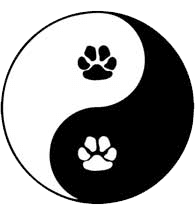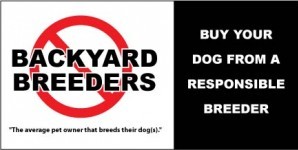Listen to this post |
 With few exceptions, regardless of the many different presentations of chronic heart disease in dogs and cats, whether primarily or secondarily, there are metabolic and structural abnormalities at the level of the heart muscle. These abnormalities lead to electrical conduction anomalies, deficiencies in the strength and timeliness of heart contractions, and compromise the ability of the heart chambers to adequately fill with blood. The net result of this is a heart that is grossly inefficient and fails to circulate adequate amounts of blood to oxygenate and nourish the body.
With few exceptions, regardless of the many different presentations of chronic heart disease in dogs and cats, whether primarily or secondarily, there are metabolic and structural abnormalities at the level of the heart muscle. These abnormalities lead to electrical conduction anomalies, deficiencies in the strength and timeliness of heart contractions, and compromise the ability of the heart chambers to adequately fill with blood. The net result of this is a heart that is grossly inefficient and fails to circulate adequate amounts of blood to oxygenate and nourish the body.
Our medical technology in treatment of heart disease has effectively retained quality of life and significant longevity for canine and feline patients with chronic heart disease. Just in my 12 plus year career alone, the advances in medical management of heart disease has progressed by leaps and bounds. However, the supplemental side of nutrient therapy to aid in the treatment of heart disease has progressed painstakingly slowly. What’s more, heart healthy supplements have for too long been ignored as a means to effectively prevent or stave off heart disease in dogs and cats.
L-Carnitine
L-Carnitine is an amino acid that is not considered an essential amino acid, as a normal body can produced all it needs by the liver utilizing the amino acids lysine and methionine, in combination with Vitamin C, B1, and B6. Carnitine is required for transporting long chain fatty acids into the mitochondria of cells, tiny cellular structures that are consider the powerhouse of the cell. Once transported into the mitochondria, the fatty acids are converted into the ultimate chemical energy source of the body, known as adenosine triphosphate (ATP). Mitochondria are abundant in the cells of all organs that have a large energy requirement, including the heart.
Although the normal pet is able to manufacture all of the L-Carnitine it needs under normal circumstances, it may not under different circumstances, where there may be an inherited deficiency in manufacturing this amino acid. It has actually been long theorized that this is the mechanism behind a specific kind of heart failure called dilative cardiomyopathy.
There is also credible evidence that even in chronic heart disease patients that manufacture adequate levels of L-Carnitine, that providing additional L-Carnitine has shown considerable benefit in management of progression and severity of disease. Thus, L-Carnitine should be an integral supplement taken by all patients afflicted with any stage of chronic heart disease. What’s more, for all breeds where dilative cardiomyopathy is seen more commonly – Cocker Spaniels, Great Danes, Doberman Pinschers, and all giant breed dogs – these dogs should be started on a regular regimen of L-Carnitine early on.
Coenzyme Q10
Coenzyme Q10 is also present in the mitochondria of the cells. It is involved in the conversion of oxygen into energy for the cell. It is especially important for the cells of organs that have high oxygen requirements, such as the heart and brain. Given its affinity for oxygen and other oxidizing compounds, Coenzyme Q10 is also a very potent anti-oxidant that protects tissues and organs from oxidizing chemicals and metabolites. All of this considered, it should come as no surprise that research suggests that Coenzyme Q10 is an invaluable supplement for management of heart muscle damage and debilitation.
Taurine
Taurine is an essential amino acid that has particularly high concentrations in the eyes and heart. It is considered essential to heart health, as deficiencies of it are directly linked to a dilative cardiomyopathy in cats and dogs. However, Taurine deficiency is not necessarily a dietary deficiency, but it could be an inherited abnormality in a dog’s or cat’s ability to absorb and assimilate the nutrient from the diet.
In most cases, dogs and cats fed animal meat based diets will satisfy their Taurine needs. With regard to cats, I have not actually seen a case of dilative cardiomyopathy in a cat fed a feline labelled diet, or home prepared diet heavy in meats. I have, however, seen many cases of heart disease in dogs fed canine diets with adequate crude protein requirements, or home prepared diets heavy in meats.
As such, like Coenzyme Q10 and L-Carnitine, Taurine should also be an integral component to management of chronic heart disease in dogs and cats. Also like L-Carnitine and Coenzyme Q10 in dog breeds known to be predisposed to dilative cardiomyopathy, they should be started and maintained on supplementation from a young age.
Dr. Roger Welton is a practicing veterinarian and highly regarded media personality through a number of topics and platforms. In addition to being passionate about integrative veterinary medicine for which he is a nationally renowned expert, Dr. Welton was also an accomplished college lacrosse player and remains to this day very involved in the sport. He is president of Maybeck Animal Hospital , runs the successful veterinary/animal health blogs Web-DVM and Dr. Roger’s Holistic Veterinary Care, and fulfills his passion for lacrosse through his lacrosse and sport blog, The Creator’s Game.



